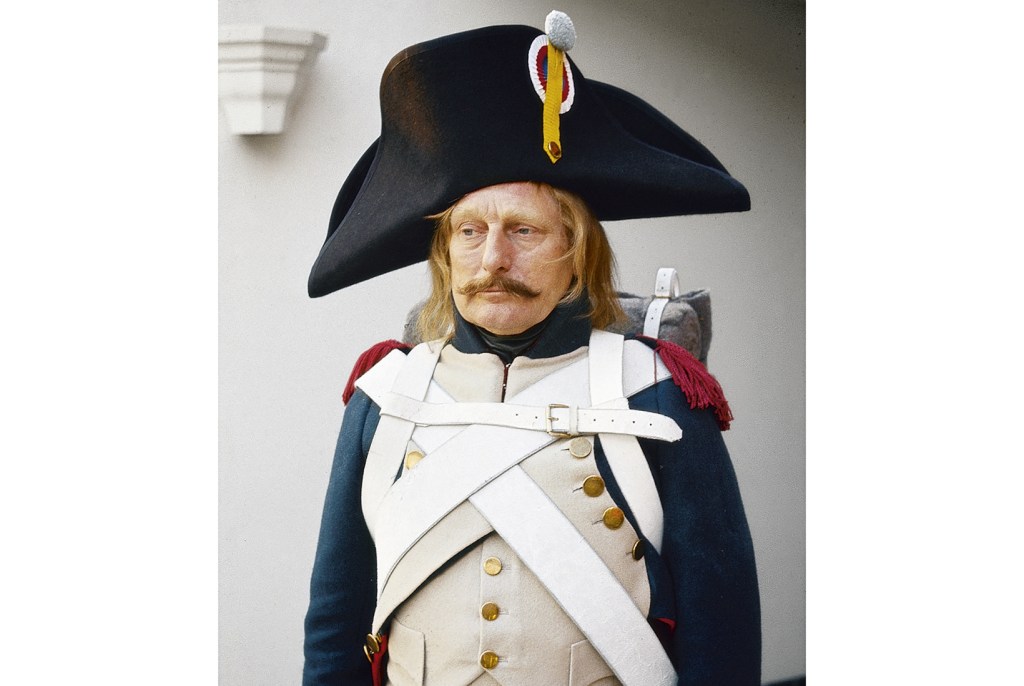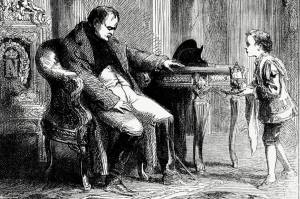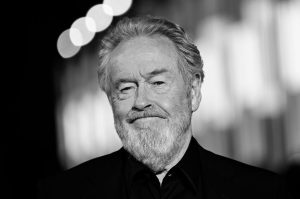Two centuries ago — on May 5, 1821 — Napoleon Bonaparte died in a rat-infested house. The fallen Emperor had spent his final years exiled on the British outpost of St Helena. Yet Napoleon’s ignominious last act was only the beginning of his legend. A recent data-driven study, published by Cambridge University Press, crowned him the second most significant figure in history, after Jesus no less.
Stanley Kubrick, the virtuoso director of 2001: A Space Odyssey and The Shining, considered Napoleon the most interesting individual who ever lived. Kubrick’s passion project — never produced — was a biopic of the conqueror. He predicted it would be the ‘best movie ever made’. Napoleon’s life has everything a storyteller could want. Here is an emperor born of nothing, a little Corsican who used his swagger to win the French game of thrones and catapult himself to the top of Europe, only to be taken down by powerful enemies. Along the way, he romanced bombshells, masterminded military victories and modernized France. Napoleon’s legacy is so vast that historian Andrew Roberts gave him the moniker ‘Napoleon the Great’.
Unsurprisingly, then, Kubrick wasn’t the first director who turned the Emperor into a movie hero. As far back as 1897, Louis Lumière produced three shorts about him. Sacha Guitry, the French Noël Coward, directed a biopic in 1955, with Orson Welles as Napoleon’s British jailor, while in preceding years Hollywood studios cast Marlon Brando, Charles Boyer and Claude Rains in the iconic role.
But everything pales in comparison to Abel Gance’s 1927 Napoleon, a silent epic of truly Napoleonic proportions. Six hours long, it thoroughly chronicles its subject’s life. So much so that it ends when he’s only 26! Gance planned five more installments but never got the money together. Although his film was cutting-edge, with fluid camera movements and rapid-fire editing, it soon fell into oblivion. Thanks to Kevin Brownlow, who restored the film (and wrote about it in The Spectator’s November 5, 2016 issue), it’s now considered a cinematic landmark for its narrative ambition and technical prowess, hailed by the likes of Francis Ford Coppola and Martin Scorsese.
Kubrick, however, slammed Gance’s Napoleon as ‘terrible’. He admitted it was inventively made, but found the plot and acting ‘crude’. His version would be the definitive one. In 1968, the director partnered with MGM Studios and hired an Oxford don as historical consultant. Kubrick read hundreds of books on the Napoleonic era and assembled a look book with thousands of illustrations, bringing his trademark perfectionism to the research process (documented in a lavish Taschen book, Stanley Kubrick’s ‘Napoleon’. The Greatest Movie Never Made). His film, he proclaimed, would ‘not be a dusty historic pageant but a film about the basic questions of our own times’. The world was in the midst of the Cold War. Hence militarism, tyranny and revolution would be the themes pulsating through Napoleon.
The script, written by Kubrick in 1969, is a literary delight. It’s a cradle-to-grave biopic, opening on Napoleon’s crib and ending with his demise. (The film would have clocked in at three hours.) The Emperor once remarked that ‘the hero of a tragedy, in order to interest us, should be neither wholly guilty nor wholly innocent’. Kubrick took that approach with his Napoleon. He’s in turn shy, domineering, generous, self-destructive — a fully formed human being. But not an ordinary one. The script’s best line has the Emperor exclaim: ‘I am not like any other man.’ Likewise, Kubrick wasn’t like any other director. Visionary, versatile, groundbreaking, he was the Napoleon of modern cinema. What a perfect pairing, then, between artist and subject.
The heart of Kubrick’s script is the romance between Napoleon and his first wife, Joséphine de Beauharnais. When they meet, he’s a young general; she’s the cougar of Parisian high society (Joséphine was six years older). The scene foretells Kubrick’s Eyes Wide Shut. Napoleon and Joséphine make eye contact at a lavish party, ‘her look lasts no longer than the flick of a card’. Soon after, they witness a pornographic show: men and women romp on stage. Napoleon, like Tom Cruise during Eyes Wide Shut’s orgy, is shocked… Later, his first night of passion with Joséphine makes for a majestic set piece. The bedroom’s walls are mirrors which, as Kubrick envisioned it, ‘multiply the erotic images of Napoleon and Joséphine’. In the film’s second half, because of her infertility, Napoleon discards her and marries the Austrian archduchess. Yet, as he lies on his deathbed, Joséphine comes to Napoleon in a dream. Eternal love awaits.
Counterbalancing these intimate scenes are war scenes. Kubrick was dazzled by the aesthetic of Napoleonic battles, calling them ‘beautiful, like vast lethal ballets’. Recreating them would be a massive undertaking: up to 15,000 soldiers of the Romanian’s People Army were to be used as extras. The director sent scouts across Europe, intending to shoot as much as possible in period locations.
For the part of Napoleon, Kubrick wanted an actor who could convey ‘inflexible willpower’ while exuding ‘tremendous charm’. He considered David Hemmings (the lead in Blow-Up) and Oskar Werner (Jules in Jules and Jim), but settled on Jack Nicholson (who would star in The Shining). For Joséphine, the director needed someone ‘able to play unhappiness with taste’. Audrey Hepburn was his first choice, but she turned Kubrick down. Other candidates included Julie Andrews and Charlotte Rampling. The cast was to be rounded out by lions of the London stage like Laurence Olivier, Paul Scofield or Alec Guinness.
Not long before filming, MGM dropped the film. The 1960s were drawing to a close; epics weren’t in vogue anymore. So, Kubrick did A Clockwork Orange instead. It fit the spirit of the nascent New Hollywood: brash, gritty, subversive. But Kubrick didn’t abandon Napoleon. He even encouraged Anthony Burgess, author of A Clockwork Orange, to write about the Emperor. (This eventually became the novel Napoleon Symphony.) Yet, come what may, Kubrick couldn’t get his Napoleonic saga financed.
Eager to make a period piece, he adapted Thackeray’s Barry Lyndon. It’s similar to Napoleon in both story and style. Set roughly in the same era, the two films follow self-made men who distinguish themselves on the battlefield, rise up in society, only to fall dramatically. Barry Lyndon’s innovative cinematography — using an ultrafast camera lens to film with natural light and candlelight — was actually planned for Napoleon.
In ensuing years, Kubrick mused about expanding his passion project into a 20-episode TV series with Al Pacino in the title role, but it never got off the ground. Those were the days before streamers and binge-watching. If we’ll never experience the magic of Stanley Kubrick’s Napoleon, we’ll soon see another master take a crack at the Emperor. Ridley Scott is preparing a biopic starring Joaquin Phoenix for Apple. But if you can’t wait for that to come out (production starts in 2022), Netflix is planning to release a definitive, seven-hour new cut of Gance’s celebrated 1927 epic later this year.
Two hundred years after his death, Napoleon still fascinates dramatists. To discover why, we must travel back to 1815. The Emperor had just lost the battle of Waterloo and surrendered to the British ship HMS Bellerophon. Onboard was an ordinary midshipman named George Home. To him, Napoleon Bonaparte represented so much more than an enemy leader: ‘He showed us what one little human creature like ourselves could accomplish in a span so short.’
Stanley Kubrick’s ‘Napoleon’. The Greatest Movie Never Made, edited by Alison Castle, is published by Taschen. This article was originally published in The Spectator’s UK magazine. Subscribe to the World edition here.


















